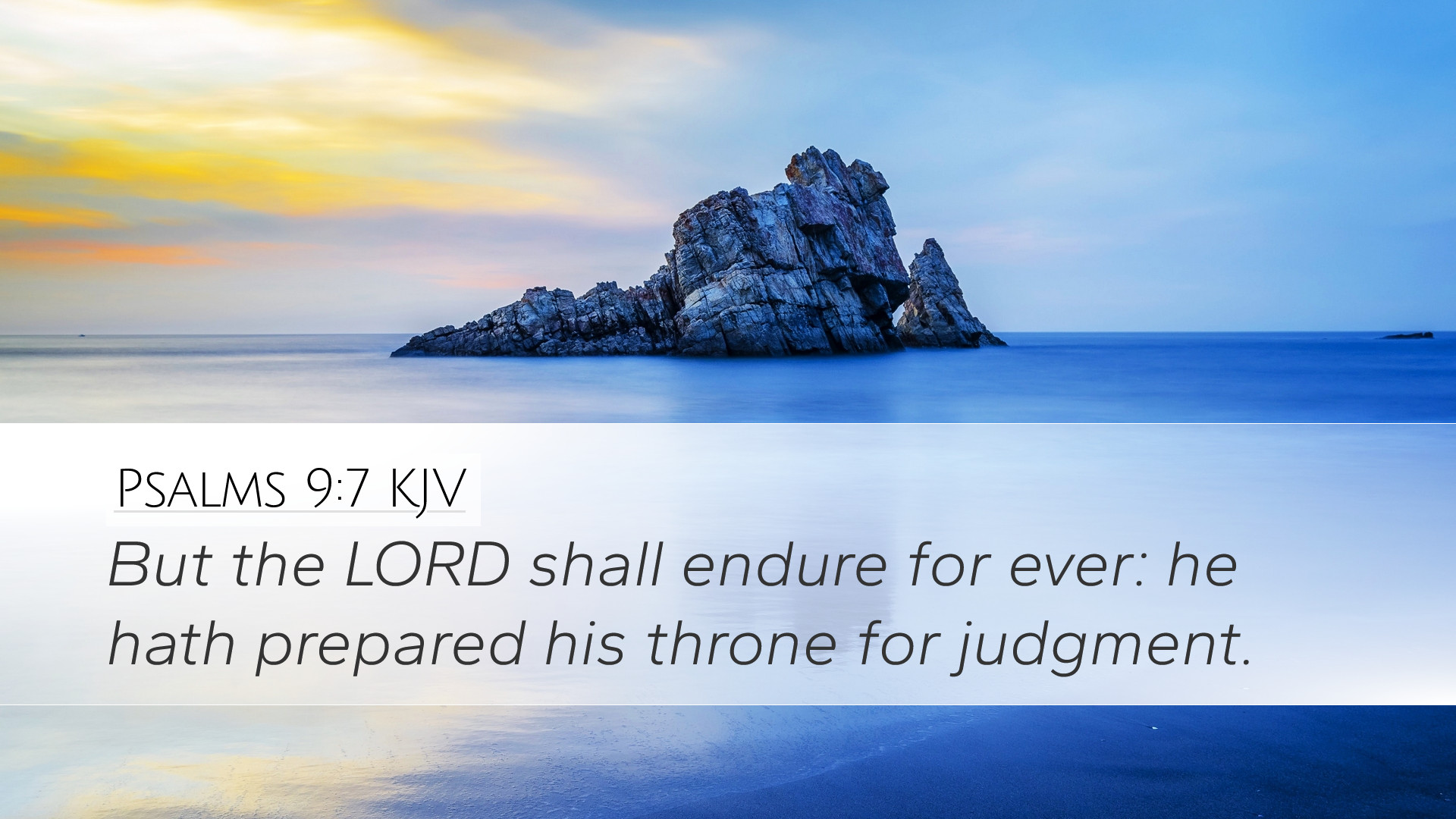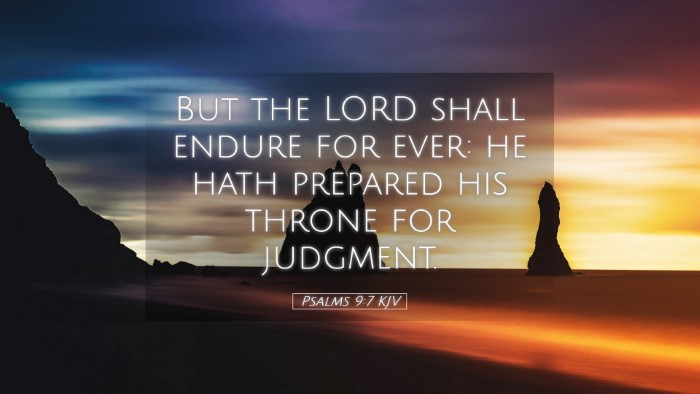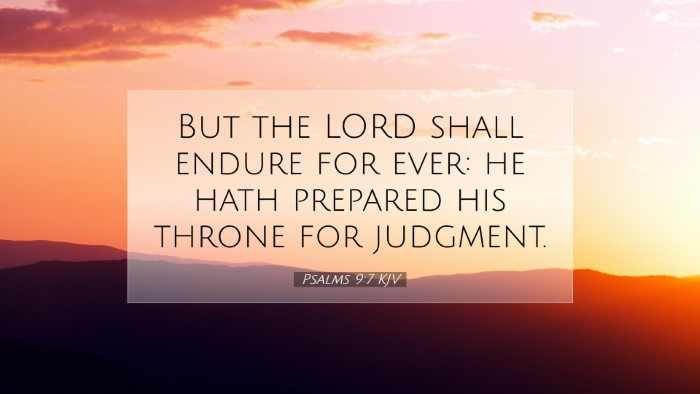Psalms 9:7 - Commentary
Verse: "But the Lord shall endure for ever: he hath prepared his throne for judgment."
Introduction
The verse from Psalms 9:7 provides profound insights into the eternal nature of God and His sovereignty over the affairs of humanity. This psalm, attributed to David, serves as a poignant reminder of God's enduring presence amidst the tumult of life, and it sets the stage for themes of justice and divine judgment that reverberate throughout the scripture.
The Eternal Nature of God
Matthew Henry's Commentary: Henry emphasizes the eternal nature of the Lord, stating that while earthly realms rise and fall, God remains steadfast. "His throne," as Henry notes, is not established upon the shifting sands of circumstance but rather upon unchanging truth and righteousness.
Albert Barnes's Analysis: Barnes elaborates on the concept of God's eternal endurance, asserting that God's reign is unaffected by time's passage. "He hath prepared his throne," suggests that God's sovereignty is intentional and deliberate; His authority is firmly established, promising justice and righteousness for generations to come.
Adam Clarke's Insights: Clarke adds depth by interpreting "endure for ever" as a source of comfort and assurance for the faithful. He asserts that believers can find solace in God’s unchanging nature, serving as an anchor during life's tempests.
God's Sovereignty and Judgment
Theological Implications: The text places significant emphasis on God's throne as a symbol of His sovereign authority. When the psalmist declares, "He hath prepared his throne for judgment," it implies an active engagement of God within the human moral sphere.
- Justice and Righteousness: Henry points out that God's judgment is characterized by perfect justice. In a world rife with injustice and moral decay, this serves as a vital reminder that God will ultimately rectify wrongs.
- Hope for the Oppressed: Barnes reinforces this hope, noting that the oppressed and the downtrodden can take refuge in God's promise to administer justice. This verse underscores God's care for the marginalized.
- Future Accountability: Clarke warns that God’s throne serves as a reminder of future accountability. Every deed, good or bad, will be evaluated under His righteous judgment, emphasizing the importance of living a life aligned with divine principles.
Historical and Cultural Context
This psalm emerges from a particular historical context of Israel, where David sought to reaffirm God’s ultimate authority during conflicts and adversities. Understanding this backdrop enriches our interpretation of the verse.
- Divine Kingship: The ancient Near Eastern understanding of kingship involves divine sanctioning. David, as king, recognized that his authority was derived from God, who is the true Sovereign.
- Contrast with Earthly Powers: The psalmists often contrasted the everlasting reign of God with the temporality of earthly kings. In the political turmoil of David's time, this assertion of God's unchanging reign provided a powerful source of inspiration and hope.
Exhortation to Believers
This verse calls believers to reflect on God's eternal nature and His role as a just judge. In light of this knowledge, the faithful are encouraged to:
- Trust in God's Justice: Understanding that God’s throne signifies unalterable justice can empower believers to navigate their own experiences of injustice with confidence.
- Rely on God's Sovereignty: In uncertain times, trusting in God's sovereignty allows Christians to align their lives with His will and find peace amidst chaos.
- Live in Light of Judgment: Clarke cautions believers to live with an awareness that they will ultimately be held accountable to God. This encourages a life characterized by integrity and adherence to God’s commands.
Conclusion
Psalms 9:7 serves as a theological cornerstone that profoundly shapes our understanding of God’s eternal reign and His just governance. By synthesizing the insights of Matthew Henry, Albert Barnes, and Adam Clarke, we glean a holistic view that emphasizes God's steadfastness, the hope He provides the oppressed, and the call to accountability for all of humanity. It is a rich tapestry of divine assurance, reminding believers of their position under God's rightful authority and the call to live righteously in anticipation of His judgment.


